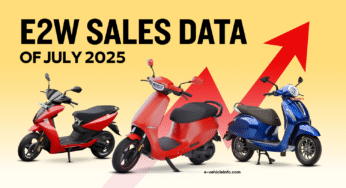To control environmental pollution in the state of Punjab brought on by vehicle emissions, the Punjab Cabinet presided over by Chief Minister Bhagwant Mann, approved the Punjab Electric Vehicle Policy (PEVP) 2022 on Friday, 3rd February 2023.
Punjab EV Policy
The Punjab EV policy was created to encourage adoption so that by the end of the policy year, electric vehicles would account for 25% of all new vehicle registrations.
Additionally, it aims to reduce vehicle emissions, encourage the development of public and private EV charging infrastructure in the state, make Punjab a preferred location for the production of EVs, their components, and batteries, make Punjab a center for EV research and development under the direction of a Center of Excellence, and ensure sustainability and reduce environmental harm.
Focus
The Punjab EV Policy 2022 seeks to encourage the use of electric vehicles in cities including Ludhiana, Amritsar, Jalandhar, Patiala, and Bathinda, which account for more than 50% of the state of Punjab’s total vehicle traffic.
Three primary areas of focus of the EV policy are:
a) Driving adoption of two-wheelers through fiscal incentives.
b) Supporting the adoption of electric vehicles for the public, shared and goods transport like buses, taxis, LCVs, and 3-wheelers.
c) Creation of adequate provisions for EV Charging Infrastructure
Aims
The Punjab government aims to establish favorable conditions for the production of EVs, EV manufacturing facilities, EV components, batteries, and EVSE. Additionally, the state must work to establish a strong R&D environment in order to draw in the anticipated investments in the electric vehicle industry. According to the Punjab Industrial and Business Development Policy 2017, these industries would receive all the incentives for “thrust areas” regardless of where their manufacturing facilities are located in the state.
Encouraging the Adoption of EVs
The policy focuses on a combination of fiscal and non-fiscal incentives for electric two-wheelers, and three-wheelers, and supports the electrification of public or shared transport and cargo carriers in order to promote the adoption of EVs in the state.
Fiscal Incentives
The state’s first lakh EVS purchasers will receive a financial incentive of up to Rs 10,000 under the new EV policy. A cash incentive of up to Rs 30,000 would be given to the first 10,000 purchasers of electric auto rickshaws and cargo e-rickshaws. The first 5,000 buyers of light commercial vehicles would receive an incentive ranging from Rs 30,000 to Rs 50,000, while the first 5,000 buyers of e-carts will receive a bonus of up to Rs 30,000.
| Vehicle Segment | State Subsidy Amount |
| 2 wheeler | Rs. 10,000 |
| 3 wheeler | Rs. 30,000 |
| 4 wheeler | Rs. 50,000 |
Non Fiscal Incentives
In addition to providing incentives, the policy also aims to waive EV customers from paying registration fees and road taxes.
Charging Infrastructure
The charging infrastructure of EVs is another objective of the policy. The government also emphasized the installation of charging stations in the state as part of its plan to build a vast network of charging infrastructure throughout Punjab, giving priority to the state’s Target Cities and Highways. The policy will identify statutory, regulatory, and market impediments to setting up EV charging stations and try to mitigate the impact of these impediments. Additionally, it will provide privacy as well as public charging station operators more business model flexibility.
Punjab E-Mobility Centre of Excellence
The state’s new EV policy will support the creation of an e-mobility Center of Excellence in collaboration with an academic partner or an industrial group. It will urge the state’s top technical universities to team up with businesses and industries to establish this center based on merit. It is anticipated that the center would establish global standards for EV and smart transportation design, development, and certification.
Conclusion
The new EV policy was approved just days before an investors’ event that the state government plans to host in Mohali on the 23rd and 24th of February.

